
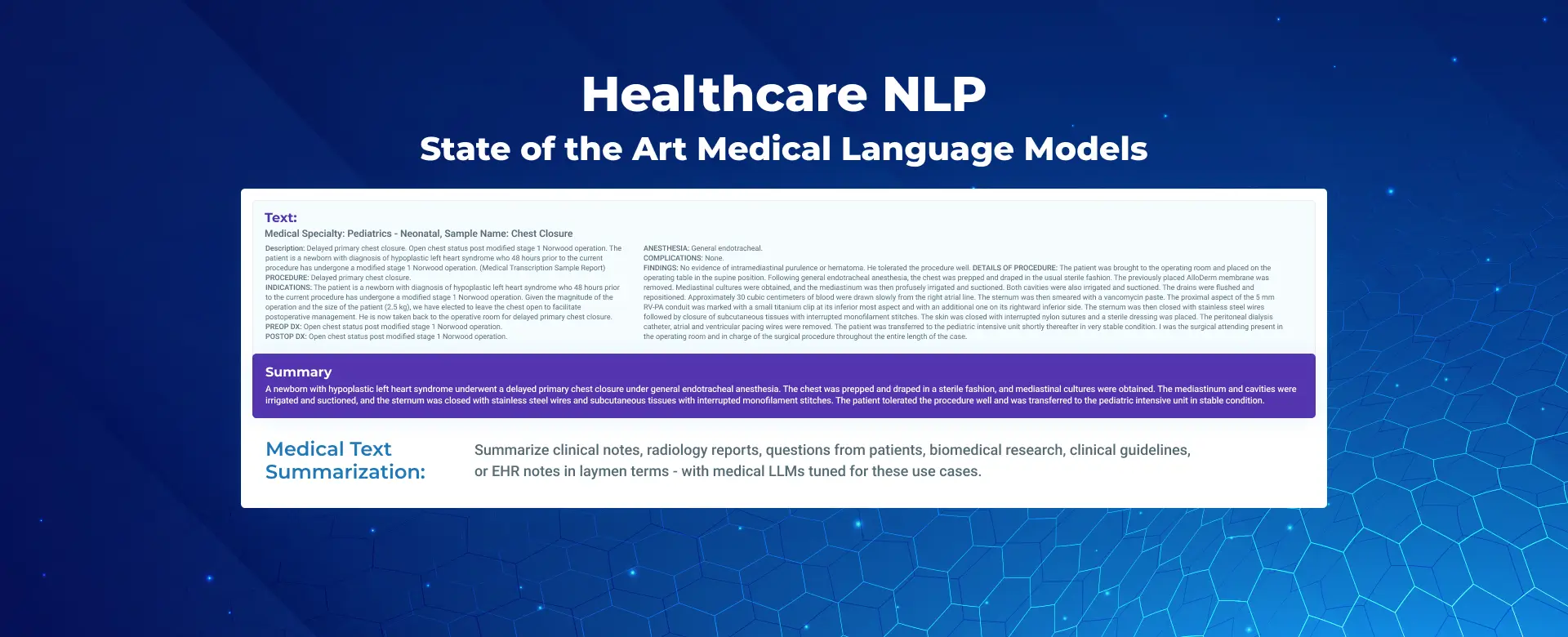
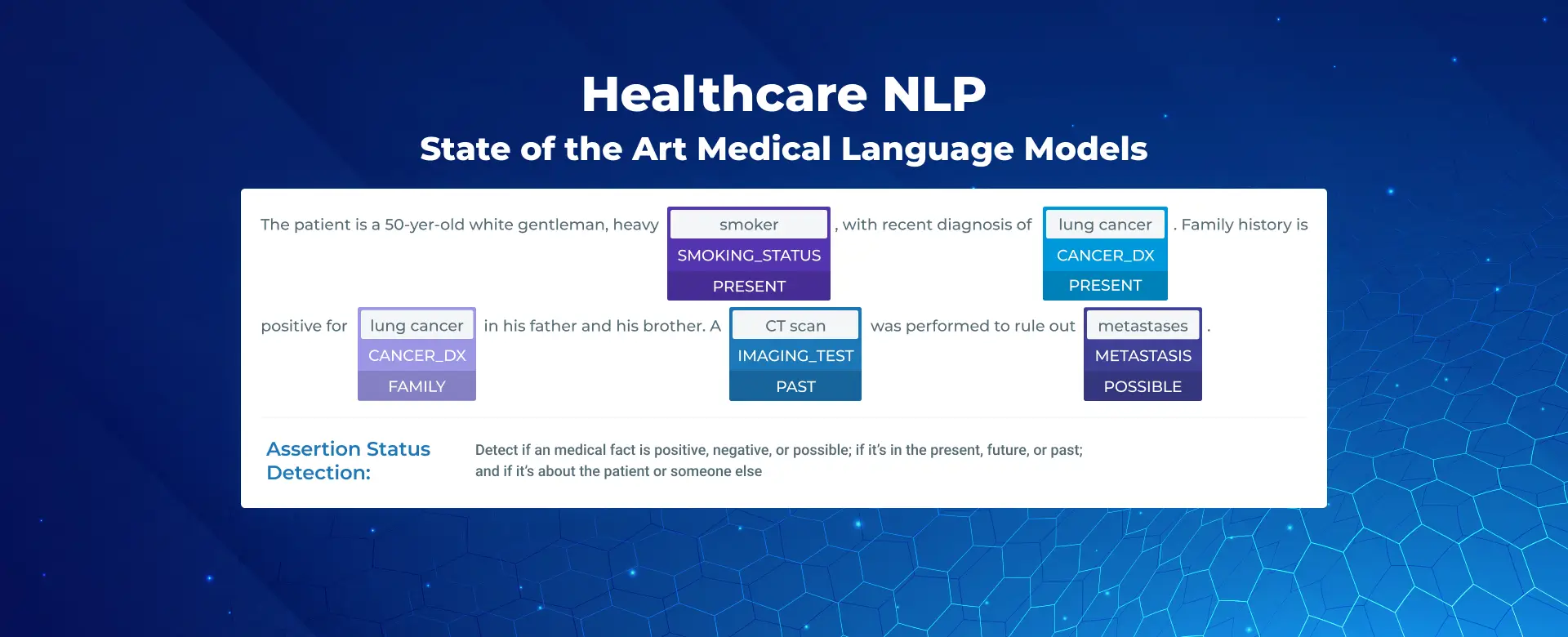
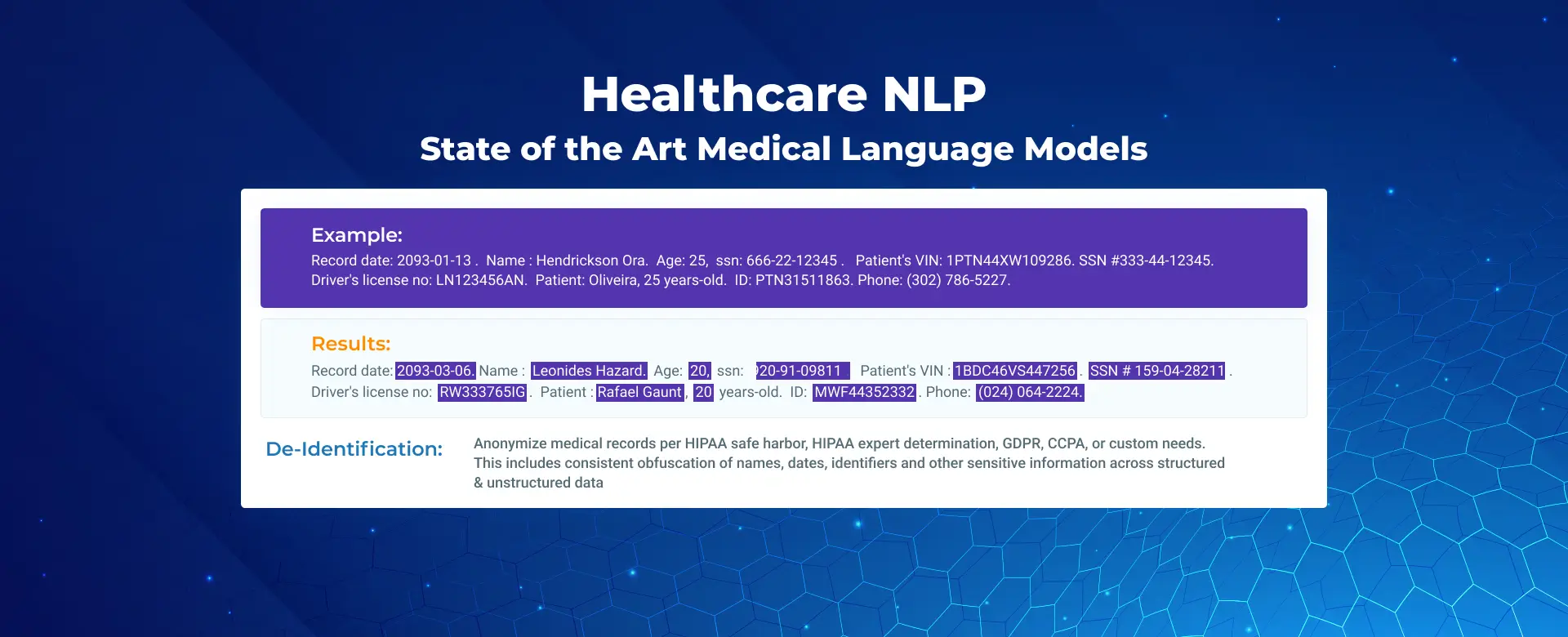
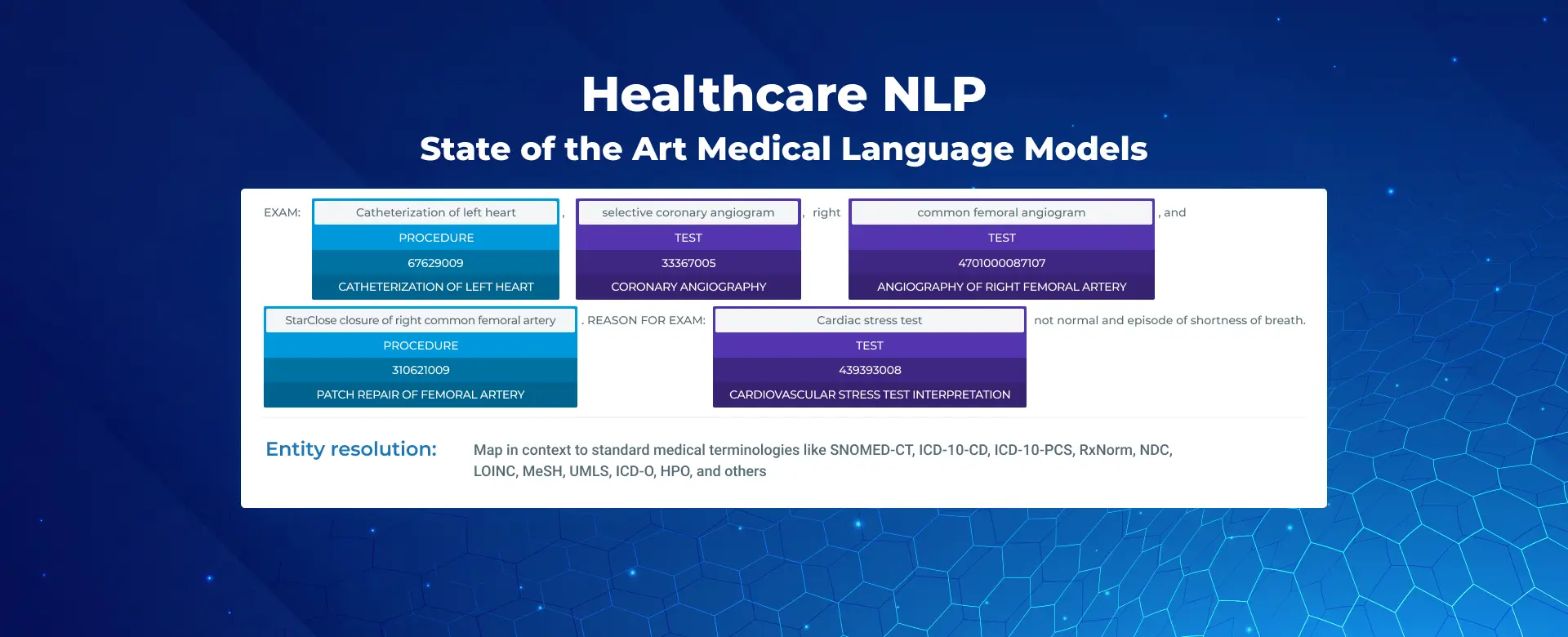
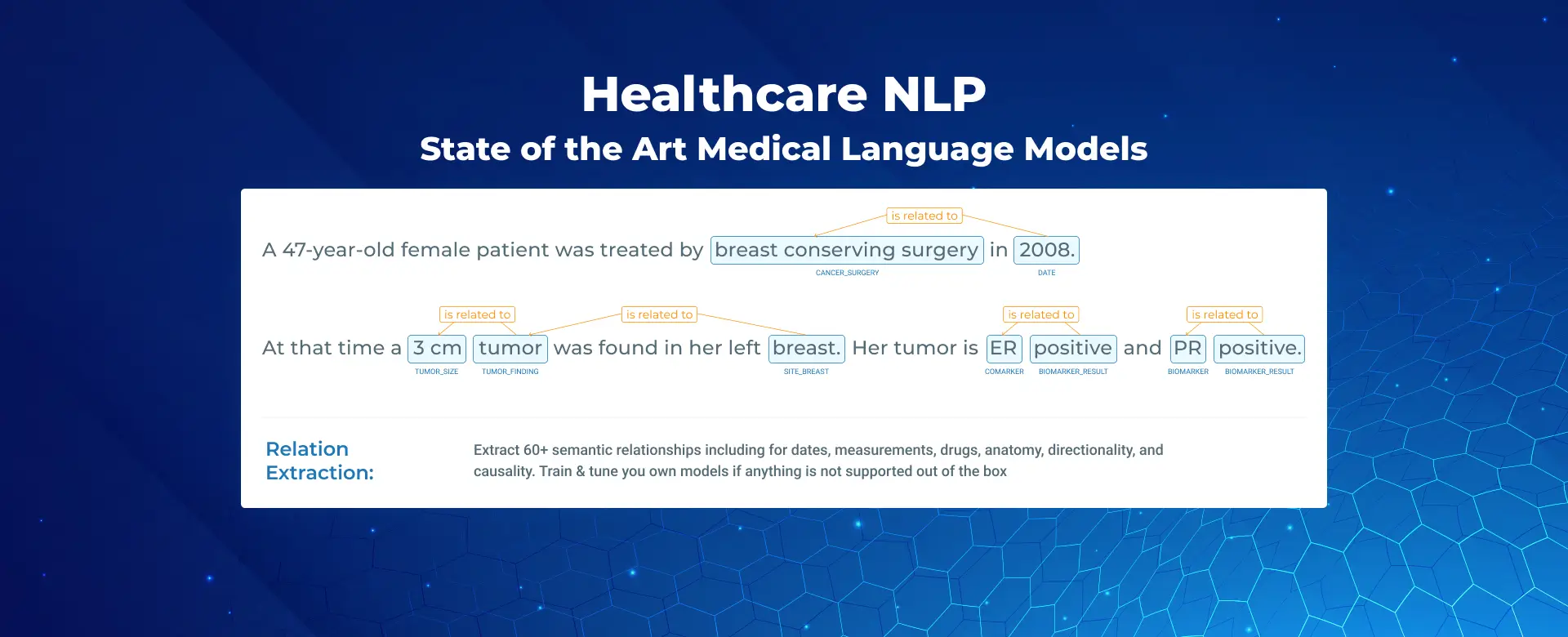
State of the Art Medical Language Models
State of the Art Medical Language Models
State of the Art Medical Language Models
State of the Art Medical Language Models
State of the Art Medical Language Models
State of the Art Medical Language Models
Signs, Symptoms, Treatments, Findings, Procedures, Drugs, Tests, Labs, Vitals, Sections, Adverse Effects, Risk Factors, Anatomy, Social Determinants, Vaccines, Demographics, Sensitive Data
Clinical Trial Design, Protocols, Objectives, Results; Research Summary & Outcomes; Organs, Cell Lines, Organisms, Tissues, Genes, Variants, Expressions, Chemicals, Phenotypes, Proteins, Pathogens





Being the most widely used library in the healthcare industry, John Snow Labs’ Healthcare NLP comes with 2,000+ pretrained models that are all developed & trained with latest state-of-the-art algorithms to solve real world problems in the healthcare domain at scale. To provide reliable models and tools all the time while covering edge cases in real-world data and improve how well models generalize, the datasets and models are updated and augmented on a regular basis.
This talk shares accuracy benchmarks from the healthcare-specific models on De-Identification, Named Entity Recognition and Entity Resolution Models. It compares accuracy with respect to both peer-reviewed academic benchmarks and the commercial solutions provided by major cloud providers (AWS Medical Comprehend, GCP Healthcare API and Azure Text Analytics for Health).